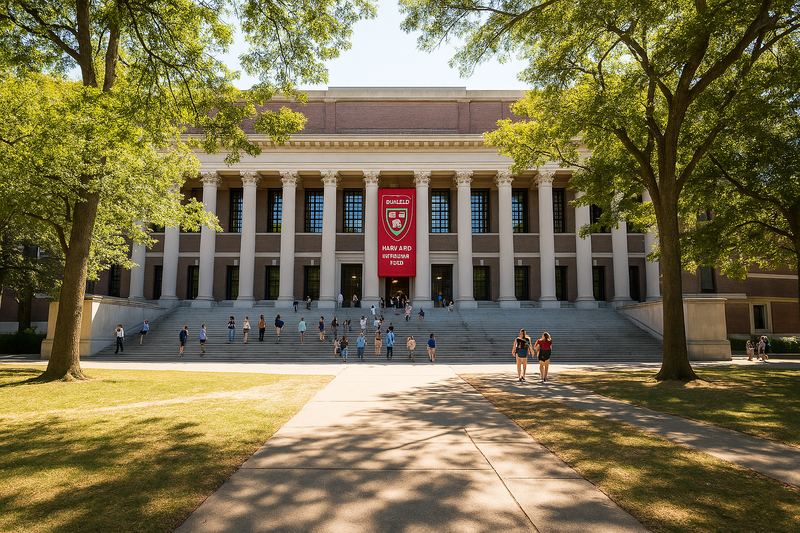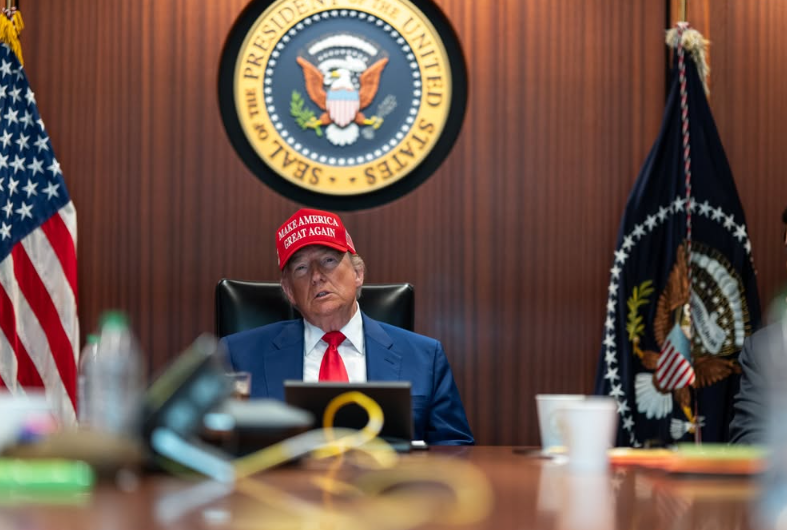Harvard’s High-Stakes Gamble: Between Academic Integrity and Political Pressure
Input
Modified
The money is on the table. The mission is under scrutiny. The message, still uncertain
Harvard University is once again in the national spotlight, not for a groundbreaking discovery or a stellar academic ranking, but for what appears to be a quiet negotiation with one of its most vocal critics. As reports circulate about a potential USD 500 million deal with the Trump administration, concerns about academic independence, political compromise, and the long-term integrity of higher education are growing both on and off campus.

A Truce or a Trade?
For years, Donald Trump has pointed to elite academic institutions as bastions of what he calls cultural elitism and ideological bias. Harvard has long topped his list, not just for its influence but also for its symbolic role in shaping American thought and leadership. According to several news reports, informal talks between Trump-aligned officials and Harvard administrators are evolving into something more concrete. A potential USD 500 million partnership could signal a dramatic shift in the relationship between the former president and America’s oldest university.
Inside Harvard, the atmosphere is changing. Faculty and students alike have begun to notice the softening of specific policies and the removal of prominent “DEI” (Diversity, Equity, and Inclusion) labels. Though officials claim the change is a strategic update in terminology, many observers view it as an early concession to political pressure. If these signals indicate a larger agreement is in progress, the implications could significantly reshape Harvard’s role in the national conversation on education, equity, and freedom of thought.
Harvard’s reputation as an academic powerhouse has long been built on its autonomy. Accepting a politically driven financial deal would not just invite criticism from across the ideological spectrum but could also erode trust within its community. The balance between upholding values and preserving financial viability is now more precarious than ever.
Redefining the Narrative
The Trump administration has shown a clear strategy in its campaign against what it labels as academic overreach. Lawsuits, funding threats, and public denunciations have created an environment where many universities are walking a tightrope. For Harvard, the political attack has been especially pointed, targeting both its internal programs and its broader public image.
This backdrop adds weight to reports of quiet diplomacy between Harvard and Trump’s camp. For the former president, cooperation from Harvard would represent a significant symbolic victory. For Harvard, engagement with a political adversary might offer breathing room at a time when universities face growing operational and financial pressures. But at what cost?
A deal with Trump might protect Harvard from immediate federal scrutiny should political winds shift further in his favor. Others warn that even tacit cooperation sends a message that institutional principles are negotiable. With many faculty already voicing opposition to the idea of a deal, internal tensions are building. Students, too, have expressed skepticism, worried that any alignment with political figures could dilute the university’s mission and compromise the educational environment they were promised.
These concerns are not hypothetical. The slow retreat from DEI branding has already caused unease among those who supported the programs as a reflection of institutional progress. Though framed as a cosmetic change, many fear it signals a larger retreat from equity-focused policies. If that retreat is linked to political pressure, then Harvard may be redefining not just language, but its entire narrative.

Academic Freedom at a Cost
At the center of this debate is the question of what academic freedom truly means in today’s polarized environment. Harvard’s leadership is facing a dilemma familiar to many modern institutions. Should it double down on principle and risk political retaliation, or engage pragmatically with adversaries to protect its longer-term stability?
The stakes are exceptionally high for a university as visible and influential as Harvard. A financial agreement, even one that does not explicitly compromise academic control, could open the door to future encroachments. Once a precedent is set, it may be challenging to reverse the influence of outside interests on educational governance.
This moment also reflects broader tensions within the higher education sector. Universities across the United States are facing funding challenges, growing student populations, and increased political scrutiny. Harvard, despite its massive endowment, is not immune to financial difficulties. Yet its choices will likely shape the decisions of other institutions watching closely.
Suppose Harvard chooses to move forward with a deal perceived as politically motivated. In that case, it will not only redefine its legacy but also influence the public’s understanding of what academic leadership entails. Can a university accept large-scale funding without inviting ideological influence? Can it engage with power and still critique it?
These are the questions Harvard must now answer, not through press releases or branding, but through the consistency of its actions. As the nation’s academic and political communities watch closely, what happens next in Cambridge will ripple far beyond the confines of the university itself.






















Comment